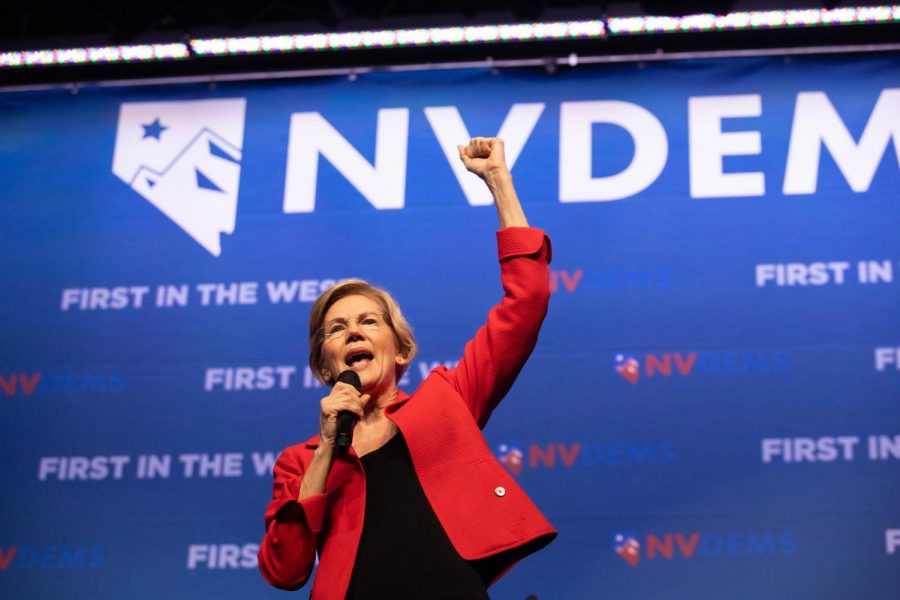With the 2020 presidential primary in full swing, and candidates’ policy plans are becoming part of the news cycle. One particular plan has gained a lot of attention: Senator Elizabeth Warren’s plan to tax the wealthy in order to pay for universal health care and funding affordable higher education. Warren officially released her plan to fund Medicare for all on Nov. 15, and that’s when all this talk about billionaires was resurrected. Her plan involves raising taxes for the wealthy and doubling them for some billionaires. Warren isn’t the only candidate who isn’t a fan of billionaires, either. Senator Bernie Sanders is of the opinion that they simply should not exist.
I agree with Sanders and Warren – we need to take a much more serious look at the dangers of people hoarding their wealth.
Let’s first take a look at some of the richest people in the world. Jeff Bezos and Bill Gates both have a net worth of over $100 billion. There are websites and games that have been created that allow you to faux-spend their wealth on items such as NFL teams, yachts, rockets and passenger jets, available for purchase in bulk. To me, that wealth is unfathomable. I feel extremely lucky when I save up a few extra hundred dollars from working full time all summer, and yet doing this until retirement will get me nowhere close to the kind of wealth that Bezos and Gates have.
So, what’s all this about “hard work?” Those who defend billionaires and the American capitalist system often come back to one idea: work hard, and you can be rich too. If only it were that simple.
The way we measure hard work is arbitrary and it does not always have to do with work that earns someone a salary. The work of a stay at home mom is hard. The work of Amazon employees is hard. The work of Jeff Bezos is hard. Saying that those who don’t have a lot of money or who don’t run a successful business don’t work hard is unfair and untrue. Their hard work is generating profit for people like Bezos, while they earn a set minimum wage of $15 an hour. Compared to some minimum wages, this is a lot – but compared to the wealth of Amazon and the influence of this company, it’s not that impressive.
The greater problem here is not that billionaires exist, but that there is a system of inequality in the United States that allows for these billionaires to exist. There is a growing wealth gap in this country that allows for the richest Americans to control the majority of the wealth.
Businesses like Amazon can easily cut costs and maximize profit, but those who are not at the top never get to see the wealth that they help to generate – yet they are crucial to success of the company. This also means that they may never get out of this system regardless of how hard they work.
While this may not seem like a big deal to some, it raises concerns about the potential rise of living and healthcare costs. There is a lot more to it than who is rich and who is poor. People’s lives are at stake, and it is why plans such as universal healthcare that require taxing the rich to fund are so necessary. In a country that lacks universal healthcare, the fear of getting sick, getting into an accident, and not being able to take care of your mental health are ever present. Not being able to pay for necessary treatment is something that no one should have to worry about.
I’m not trying to tax Bill Gates’ money to spite him, or because I’m jealous of his wealth. The reason I feel so strongly about this is because I hope to live in a country where success is measured by the health and happiness of its citizens. This can determine the citizens’ ability to contribute to the country by means of working and supporting the companies we have grown to depend on.
We as Americans have the power to solve a lot of problems that have developed as a result of wasted capital. Not everyone thinks we should have universal healthcare or access to higher education, but I think it is a human right. We need to start talking about what we can all do to make that a reality and how our actions and our wealth are part of a bigger picture for humanity.
Shona McMorrow is a Collegian columnist and can be reached at [email protected].




















Ciaran Tuomey • Nov 27, 2019 at 9:05 am
Absolutely no way does this make sense. If no billionaires whats the incentive for people to excel. No MIllionaires exist in Venezuela but do you want to live there?
joeyd • Nov 21, 2019 at 3:58 am
College education should be a human right, free education and 1,000 dollar a month stipend if you go to college for everyone!! We can take the billionaire’s money and give it to those who deserve it more! Like upper middle class college students who are going to party hard on the weekends!!